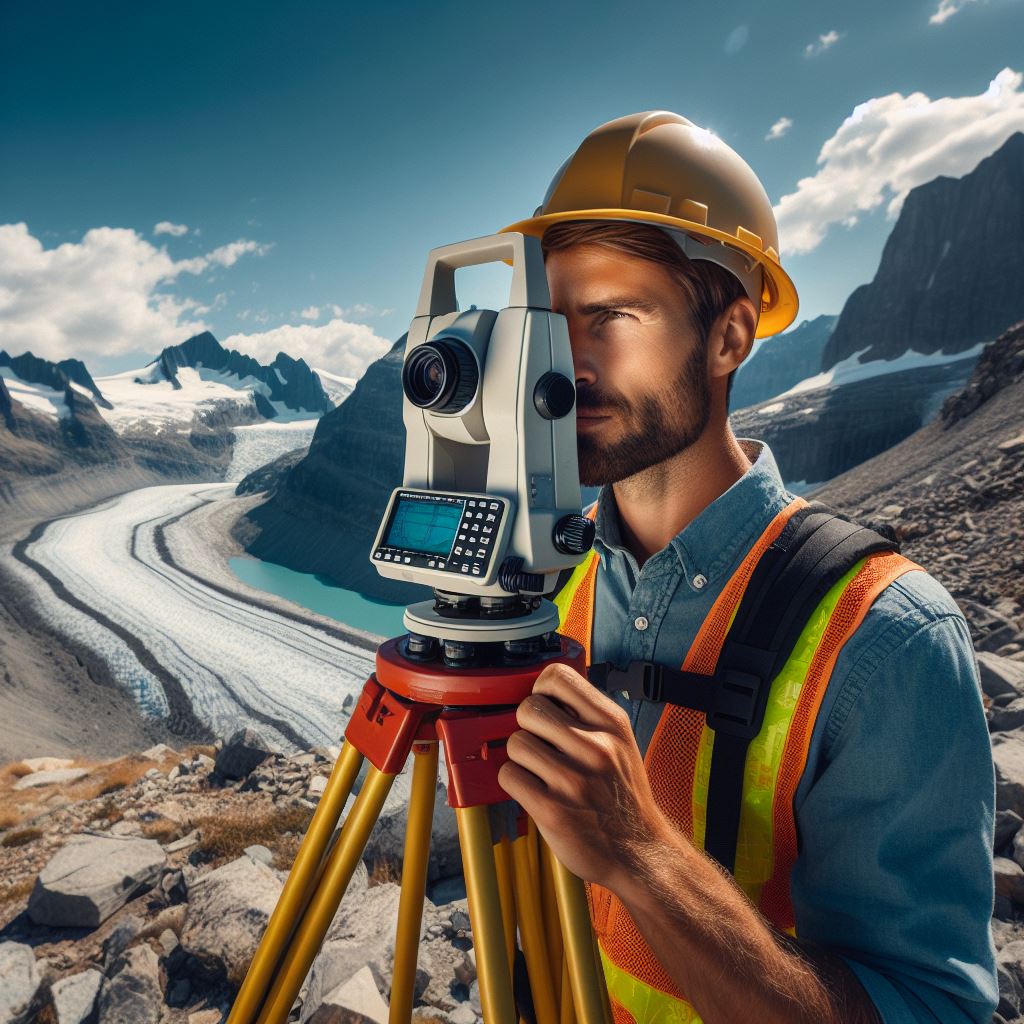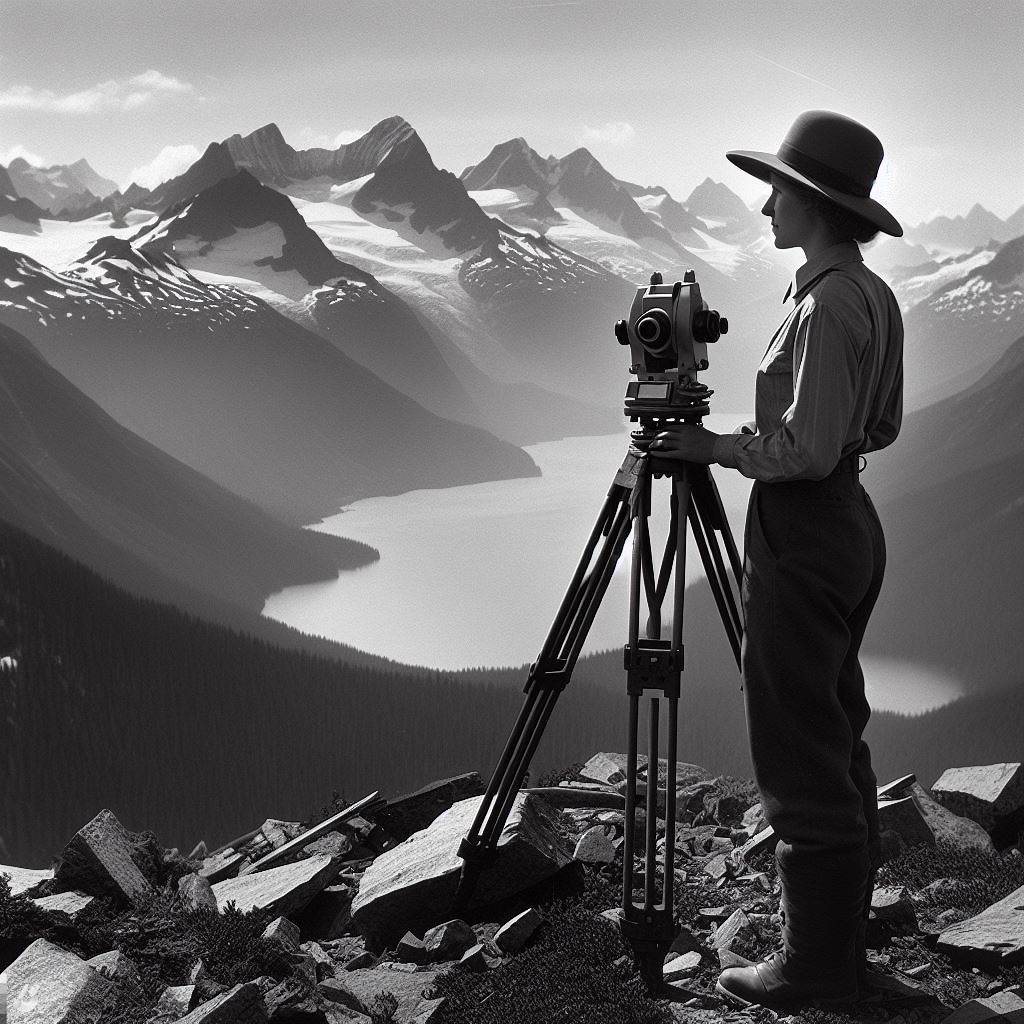Introduction
Choosing the right university is crucial for aspiring surveyors in Canada, given the growing demand in the field.
Delving into the realm of surveying requires more than just technical know-how; it demands a profound understanding of the intricate landscapes and evolving technologies that define the profession.
Aspiring surveyors seek institutions that not only impart theoretical knowledge but also foster hands-on experience and critical thinking skills.
This comprehensive guide goes beyond a mere list of universities, offering a detailed exploration of the unique features, specialized programs, and cutting-edge facilities that distinguish the top Canadian institutions for surveying education.
From advanced geospatial technologies to fieldwork opportunities, discover how these universities nurture a holistic learning environment, preparing students to navigate the challenges of modern surveying practices.
Whether you’re drawn to the vast expanses of land in the Great White North or the urban landscapes that dot the country, this guide will help you navigate the educational landscape and choose the university that aligns with your career aspirations.
Join us as we unravel the exciting journey that awaits aspiring surveyors within the distinguished halls of Canada’s top universities.
Importance of Surveying Education
Formal education in surveying plays a vital role in the development and success of aspiring surveyors.
Here are some reasons why:
Significance of a Formal Education
- Provides a solid foundation: A surveying program offers comprehensive knowledge and practical skills necessary for the profession.
- Ensures accuracy and precision: Through education, surveyors learn precise measurement techniques and error reduction methods.
- Enhances problem-solving abilities: Formal education equips surveyors with critical thinking skills to solve complex spatial problems.
- Develops professionalism: Surveying programs emphasize ethics, integrity, and professionalism in the field.
Skills and Knowledge Acquired
- Technical expertise: Surveying programs teach students how to operate advanced equipment, such as GPS receivers and total stations.
- Data analysis: Students learn how to analyze survey data using software and interpret the results accurately.
- Land surveying methods: A formal education covers various land surveying techniques, including boundary surveying and topographic surveying.
- Legal aspects: Students gain an understanding of surveying laws and regulations, ensuring compliance with legal requirements.
- Communication skills: Surveying programs emphasize effective communication, as surveyors often work with clients, engineers, and architects.
Enhancing Job Opportunities and Career Advancement
- Credibility and recognition: Graduating from a reputable university with a surveying degree enhances a surveyor’s professional reputation.
- Industry demand: As the construction and infrastructure sectors grow, the demand for qualified surveyors increases.
- Competitive advantage: A degree from a top university gives surveyors a competitive edge in the job market.
- Career advancement: Employers often prefer candidates with formal education, offering better opportunities for promotions and higher salaries.
- Networking opportunities: Universities often have strong connections with industry professionals, providing access to job opportunities and mentorship.
In short, pursuing formal education in surveying is highly beneficial for aspiring surveyors.
A surveying program equips students with the necessary skills, knowledge, and professionalism required in the field.
Graduating from a reputable university enhances job prospects and offers avenues for career advancement.
By investing in surveying education, individuals can pave the way for a successful and fulfilling career as surveyors.
Read: Surveying Laws in Canada: What You Need to Know
Factors to Consider When Choosing a University
When it comes to pursuing a career in surveying, choosing the right university is crucial.
A comprehensive education in surveying is essential for aspiring surveyors to gain the necessary knowledge and skills for success in the field.
In this section, we will discuss the key factors to consider when selecting a university for surveying studies.
Location
The advantages of studying in a certain region go beyond the beauty of the surroundings.
Consider the job prospects and practical experience opportunities available in that area.
Some regions have a higher demand for surveyors, which can lead to better career prospects upon graduation.
For example, studying in cities with large infrastructure projects or booming construction industries can provide students with valuable hands-on experience during their studies.
Curriculum
A comprehensive curriculum is essential for aspiring surveyors. Look for universities that offer detailed courses covering various aspects of surveying.
A strong curriculum should include both theoretical and practical elements, providing students with a well-rounded education.
It should cover topics such as land surveying, geodetic surveying, cadastral surveying, and photogrammetry, among others.
As surveying is a multidisciplinary field, a diverse range of courses will equip students with the knowledge and skills needed to excel in their careers.
Unlock Your Career Potential
Visualize a clear path to success with our tailored Career Consulting service. Personalized insights in just 1-3 days.
Get StartedFaculty and Facilities
Experienced faculty members play a vital role in providing quality education.
Look for universities that have renowned experts in the field of surveying as professors.
These professors can offer valuable insights, mentorship, and guidance to students.
Additionally, state-of-the-art facilities such as geomatics labs, surveying equipment, and computer software can enhance the learning experience and enable students to gain practical skills.
Industry Connections
Choosing a university with strong ties to industry professionals and organizations is crucial.
These connections can provide networking opportunities, internships, and potential job placements.
Universities with active partnerships with surveying companies and professional organizations often offer guest lectures, workshops, and career fairs, allowing students to interact with industry experts.
Such exposure is invaluable for building connections and getting a foot in the door of the surveying industry.
In fact, when choosing a university for surveying studies, it is important to consider factors such as location, curriculum, faculty, facilities, and industry connections.
Each factor contributes to a well-rounded education and better career prospects for aspiring surveyors. Location can impact job prospects and practical experience opportunities.
A comprehensive curriculum covering various aspects of surveying is essential. Experienced faculty members and state-of-the-art facilities provide quality education.
Lastly, industry connections offer networking opportunities and potential job placements.
By considering these factors, aspiring surveyors can make informed decisions and set themselves up for success in their future careers.
Read: How to Become a Surveyor in Canada: A Step Guide

Top Canadian Universities for Aspiring Surveyors
When it comes to pursuing a career in surveying, choosing the right university can make all the difference. Canada offers several top-notch institutions that provide comprehensive surveying programs.
In this section, we will explore three of the top Canadian universities for aspiring surveyors.
University of Calgary
The University of Calgary is renowned for its strong surveying program.
The curriculum covers both theoretical and practical aspects of surveying, ensuring that students acquire a well-rounded education.
The program boasts experienced faculty members who are industry experts, providing valuable insights and guidance to students.
One of the strengths of the University of Calgary’s surveying program is its focus on cutting-edge technology.
Students have access to state-of-the-art equipment and software, preparing them for the demands of modern surveying.
This emphasis on technology gives graduates a competitive edge in the job market.
University of New Brunswick (UNB)
The University of New Brunswick offers a unique surveying program that sets it apart from other institutions.
Students at UNB can specialize in different areas of surveying, such as hydrographic surveying or cadastral surveying.
This specialization allows students to tailor their education according to their interests and career goals.
In addition to specialized courses, the University of New Brunswick provides numerous research opportunities for aspiring surveyors.
Students can engage in cutting-edge research projects, working alongside renowned professors and industry professionals.
This exposure to research enhances students’ problem-solving and critical thinking skills, making them valuable assets in the field.
Ryerson University
Ryerson University offers a surveying program that stands out for its emphasis on practical training and comprehensive internships.
The university maintains strong ties with industry partners, providing students with ample opportunities to gain real-world experience.
Students at Ryerson University have access to a state-of-the-art surveying lab equipped with the latest tools and equipment.
This hands-on training allows them to develop the necessary skills to excel in the field.
Additionally, the university’s internship program exposes students to various surveying projects, further enhancing their understanding of the industry.
Overall, the surveying programs at these top Canadian universities offer aspiring surveyors the knowledge, skills, and hands-on experience necessary for a successful career in surveying.
Whether one values technology, specialization, or practical training, these institutions provide a solid foundation for future professionals in the field.
Choosing the right university is a crucial decision that can shape an individual’s career trajectory.
Prospective surveying students should carefully consider their interests, goals, and preferred learning style when selecting an institution.
By doing so, they can ensure that they receive the best education possible and embark on a fruitful career in surveying.
Read: Land Surveying: Key Tools and Technologies Used
Additional Considerations for Prospective Surveying Students
When considering a university for surveying studies, there are additional factors that aspiring surveyors should take into account:
Co-op or Internship Programs
- Co-op or internship programs offered by universities can provide aspiring surveyors with valuable work experience.
- These programs allow students to apply their theoretical knowledge in real-world settings.
- Through co-op or internship programs, students can gain industry connections, which can be beneficial for future job prospects.
- Working alongside professionals in the field gives students a chance to learn from their expertise.
- The practical experience gained through these programs can enhance students’ understanding and application of surveying principles.
Professional Accreditation
- It is important for prospective surveying students to choose a university that is recognized by professional associations.
- Professional accreditation ensures that the education received meets industry standards and requirements.
- Being enrolled in an accredited program increases the likelihood of eligibility for certification and licensing.
- Employers often prefer hiring surveyors who have graduated from accredited universities.
- Accredited programs undergo regular evaluation to ensure they are up-to-date with the latest advancements in the field.
Alumni Success
- Examining the achievements and success stories of past graduates from surveyed universities can be insightful.
- Alumni success stories demonstrate the quality of education provided by these universities.
- It showcases the potential career paths that can be pursued after graduating from these universities.
- The accomplishments of alumni can serve as inspiration for current students.
- Networking with successful alumni can open doors to mentorship and job opportunities.
By considering co-op or internship programs, professional accreditation, and alumni success stories, aspiring surveyors can make informed decisions when choosing the right university for their education.
Read: The Daily Life of a Canadian Surveyor: An Insight
Gain More Insights: Mech Engineers and AI: The Canadian Scene
Conclusion
Choosing the right university is crucial for aspiring surveyors. The listed universities in Canada offer excellent surveying programs.
Selecting the right university is crucial for aspiring surveyors.
The listed Canadian universities stand out for their excellent surveying programs, providing a solid foundation for future professionals.
Consider individual preferences and goals when deciding on a university, ensuring alignment with personal aspirations.
Take the time to delve deeper into each university’s offerings, faculty expertise, and research opportunities. Remember, the right choice sets the stage for a successful surveying career.
In recap, prioritize factors such as program accreditation, industry connections, and hands-on experience.
The journey to becoming a skilled surveyor starts with a well-informed decision.
Research, reflect, and make the choice that aligns with your unique career goals in the dynamic field of surveying.
It is important for readers to conduct further research and consider their individual preferences and goals when deciding on a university.




